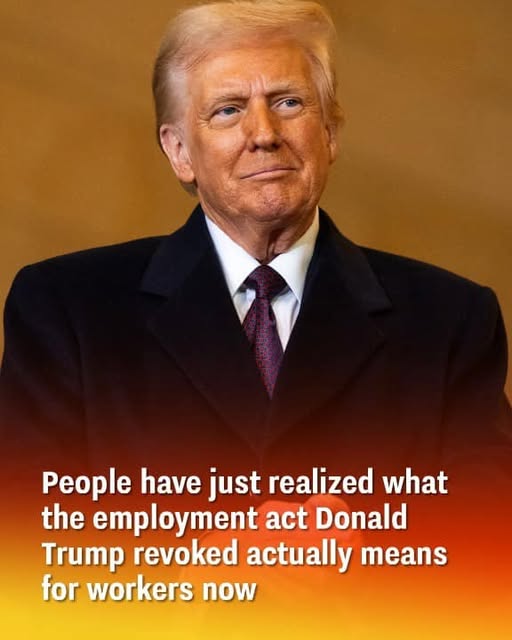Since returning to the White House, President Donald Trump has moved quickly to leave his mark on his second term. Within hours of his inauguration on January 20, Trump signed 25 executive orders tackling a wide range of issues. These included halting the ban on TikTok, revising immigration laws, and making a polarizing declaration that “there are only two genders.”
Among these executive actions, Trump revoked the Fair Workplaces Act of 2021, a significant employment measure introduced during Joe Biden’s presidency. The Fair Workplaces Act mandated a federal minimum wage of $15 per hour, offered protections for gig economy workers, and expanded paid family leave. At the time, it was hailed as a landmark piece of legislation aimed at addressing income inequality and enhancing workers’ rights.
In announcing the revocation, Trump argued that the Fair Workplaces Act had hindered economic growth and discouraged small business expansion. “This was an overreach that hurt more than it helped,” Trump stated. “My administration is committed to fostering an economy where businesses thrive, creating more jobs and opportunities for every American.”
The repeal has sparked significant debate across political and social spectrums. Supporters of the decision, including many small business owners and Republican lawmakers, welcomed the move, claiming the Act placed an undue financial burden on employers, particularly in rural areas where wage increases were difficult to sustain. “This gives us breathing room to grow our business and hire more people,” said Sarah Jennings, a café owner in Nebraska.
Critics, however, argue that revoking the Act undermines worker protections and risks plunging many Americans back into economic precarity. Labor unions, advocacy groups, and progressive lawmakers have been vocal in their condemnation. Senator Bernie Sanders called the repeal “a disgraceful attack on working people” and warned of widening inequality. “Millions of workers were finally starting to see the dignity they deserve with fair pay and better benefits. This move sends us backward,” he stated in a press release.
Economic experts remain divided on the potential impact. Some argue that repealing the Act could encourage businesses to invest more in hiring and expansion, boosting the overall economy. Others caution that the absence of federal mandates may exacerbate regional wage disparities and leave vulnerable workers with fewer protections.
The gig economy is particularly poised to feel the effects of this decision. Under the Fair Workplaces Act, gig workers were entitled to benefits such as health insurance and paid sick leave, a first for many in this sector. With those provisions now rescinded, independent contractors fear losing critical safety nets. Lyft driver Carla Morales shared her frustration, saying, “We were just starting to be treated like real workers. Now it feels like we’re invisible again.”
Trump’s decision to repeal the Act also reignited discussions around paid family leave. The Fair Workplaces Act had introduced 12 weeks of paid leave for new parents and caregivers, a policy that had bipartisan support among voters. With the repeal, advocates worry that the U.S. will continue to lag behind other developed nations in supporting families. “Paid family leave isn’t a luxury; it’s a necessity,” said Nicole Harper, a policy analyst at the Center for American Progress. “Rolling back this progress disproportionately harms women and low-income families.”
Amid the controversy, public opinion appears deeply divided. Polls conducted shortly after the repeal show a stark partisan split, with 72% of Republicans supporting the decision compared to only 18% of Democrats. Independent voters were nearly evenly split, with 49% expressing concern about the repeal’s impact on workers and 45% agreeing with Trump’s rationale of fostering business growth.
While the long-term effects of the repeal remain uncertain, the immediate fallout highlights a broader clash over the role of government in regulating labor practices and addressing economic inequality. As protests and rallies organized by labor unions gain momentum, the issue seems set to remain a flashpoint in national politics.
The repeal of the Fair Workplaces Act underscores the sharp ideological divides in the United States. For Trump, it represents a step toward deregulation and free-market principles. For his critics, it signals a rollback of hard-won gains for American workers. As the nation grapples with the implications of this decision, its true impact on businesses, workers, and families will likely unfold over the coming months and years.
